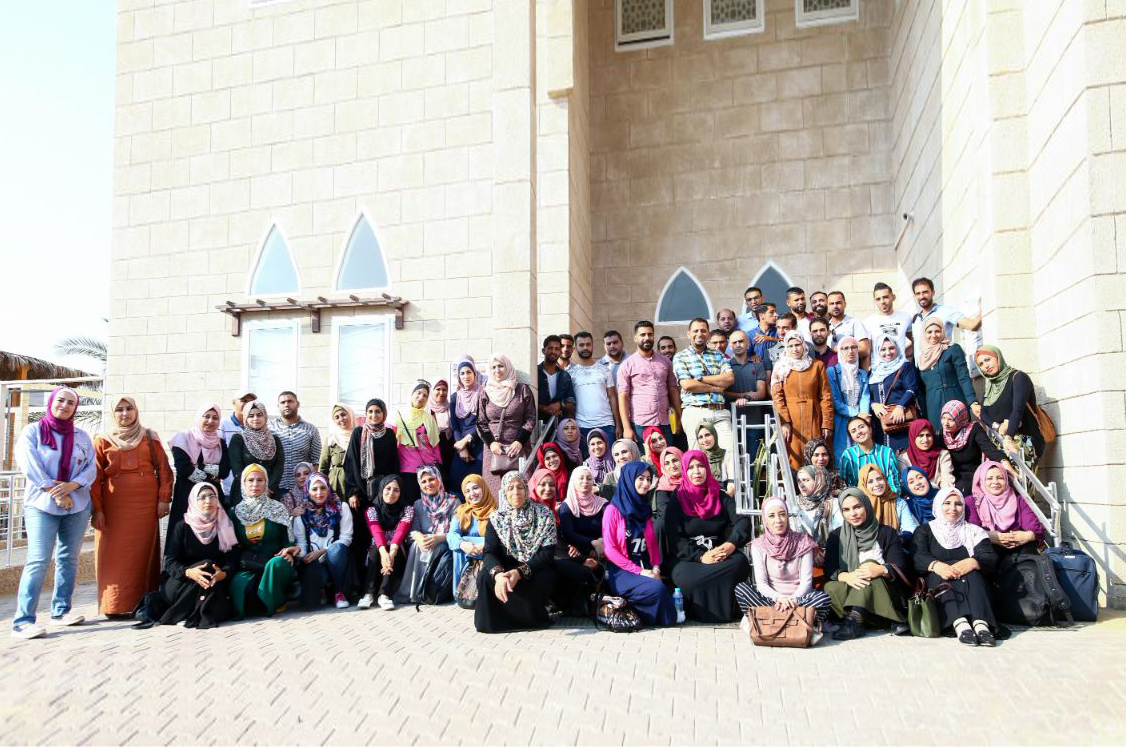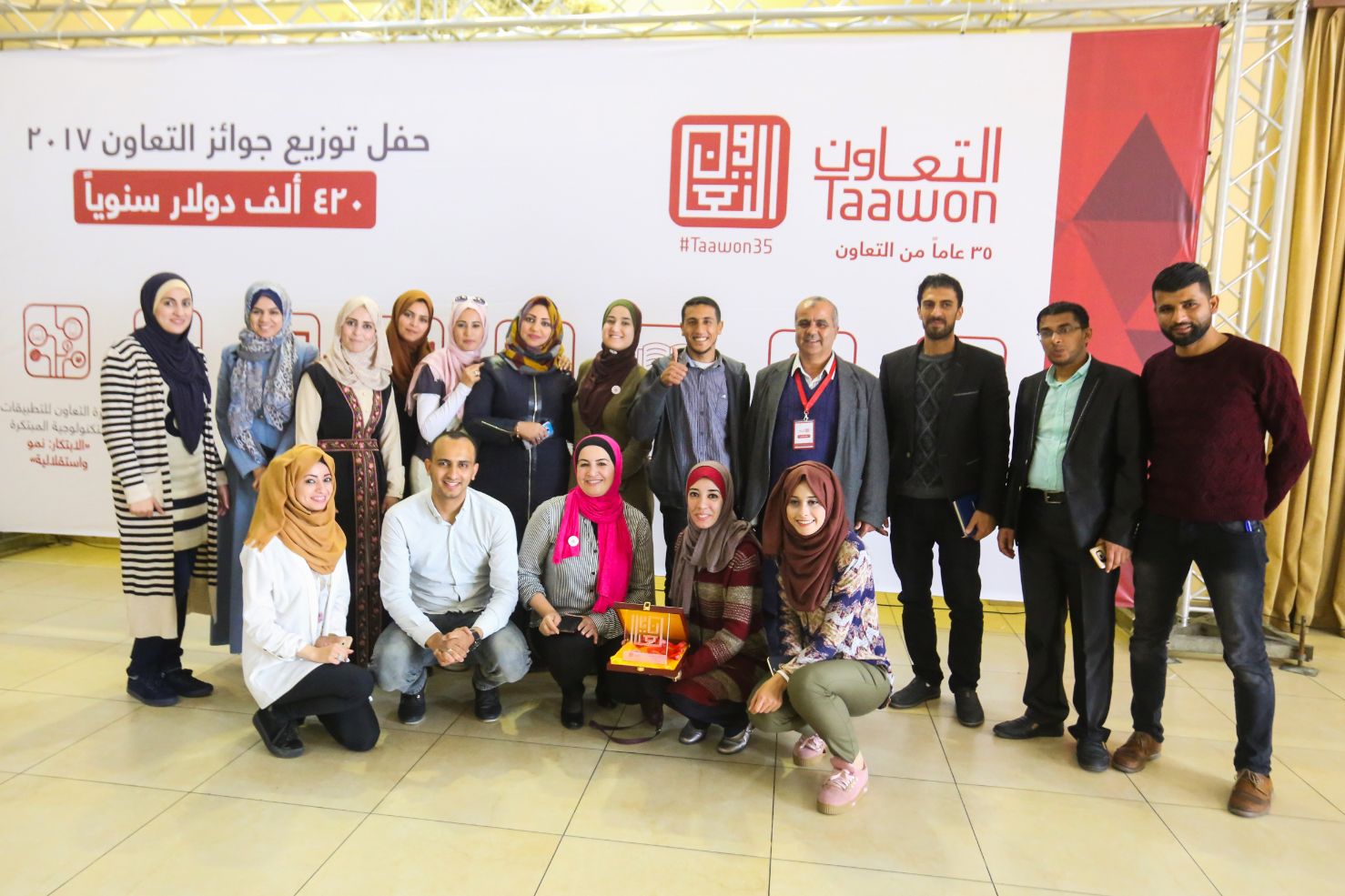Our General Policies and Handbooks

Our General Policies and Handbooks
The general policies and handbooks are part of NAWA internal regulations. They were prepared and approved as a major reference to ensure success and continuity for the Association in preserving and using its resources and assets efficiently and effectively.
Good Governance Handbook
The Good Governance Handbook is part of NAWA internal regulations. It was prepared and approved as a major reference to ensure success and continuity for the Association in preserving and using its resources and assets efficiently and effectively. The Handbook is an official document, which includes the fundamentals and standards to be followed for optimal effectiveness and professionalism. Furthermore, it develops a level of good governance and administration of NAWA.
The Handbook follows the law that regulates the work of civil institutions and its provisions ‘Charitable Associations and Civil Societies Law no. (1) for the year 2000’; the Executive Regulations of Law no. (1) for the year 2000 approved by the Council of Ministers’ decision no. (9) for the year 2003; NAWA bylaws; and the best practices used in the handbooks of the board of directors in some civil non-profit organizations that are based on national, local and international membership.
Administrative Handbook
The Administrative Handbook is part of NAWA internal regulations. It was prepared and approved as a major reference to ensure success and continuity for the Association in preserving and using its resources and assets efficiently and effectively. The Handbook is an official document, which includes the fundamentals and standards to be followed for all administrative work and matters related to NAWA human resources. It links the strategies and policies of the human resources with the administrative and legal procedures and systems according to the best practices of administration and in line with the Association size and its human and financial resources.
The Handbook is consistent with the spirit of the law that regulates the work of civil institutions and its provisions ‘Charitable Associations and Civil Societies Law no. (1) for the year 2000’; the Executive Regulations of Law no. (1) for the year 2000 approved by the Council of Ministers’ decision no. (9) for the year 2003; NAWA bylaws; and the best practices used in the handbooks of the boards of directors in some civil non-profit organizations that are based on national, local and international membership.
Financial Policies and Procedures Handbook
This Handbook aims to outline financial policies and procedures to facilitate its seamless application. It includes the major financial policies and procedures of NAWA which are compatible with the Financial Reporting International Standards (FRIS) and the accounting policies applicable at non-profit organizations. NAWA took into consideration the local laws and regulations issued by government bodies, which apply to contributions, grants, donations and more since the issue and approval of this Handbook.
To ensure all policies and procedures stay current and up-to-date, NAWA officials modify the Handbook as required.
Childhood Protection Handbook
This Handbook is part of NAWA internal regulations. It was prepared and approved as a major reference to ensure a positive environment for children from both genders and children with disabilities. It also reflects the fundamental duty of both the Association and its staff who are committed to protecting the children whom NAWA communicates with through its centers, programs, and partners.
The Handbook is compatible with the Palestinian Child Law no. (7) for the year 2004 and its amendments according to the decision issued in 2012; NAWA bylaws; the UN Convention on the Rights of the Child adopted in 1989 and effective in 1990; ‘A World Fit for Children’ document adopted by the UN in 2001; and the Best Practices used in the handbooks of international organizations working with children, specifically UNICEF, Save the Children and War Child Organization.
Monitoring and Evaluation Handbook (M&E)
The Monitoring and Evaluation Handbook is part of NAWA's internal regulations. It is a clearly drafted, official document, approved by NAWA Board of Directors. It was developed as a major reference for monitoring and evaluating tasks in the Association in line with its Strategic Plan 2018-2020 to ensure success, development, transparency, effective management of quality, learning and accountability, and preserving its resources and assets.
The Handbook includes the fundamentals and standards to be followed for monitoring and evaluating work. Moreover, it is supported by work forms and instructions related to activities and the person responsible to implement them.
Early Childhood Handbook
In a unique partnership with educators of both genders from the Waldorf Steiner and Drosos Foundation, NAWA produced the ‘Early Childhood Educational Guidelines Handbook’, which was the outcome of years of working together with Al Hekayat Kindergarten. The process included field visits and local workshops covering psychological support, cultural revitalization, and active learning. The Handbook covered Al Hekayat Kindergarten profile for a deeper understanding of child growth, development stages in childhood and adolescence, highlighting the first seven years of childhood, guidelines for the practical implementation of educational principles and requirements, free play and its meaning in kindergartens, preparing for school, working with parents and other topics related to children in kindergarten.
Gender Inclusion and Integration Policy
NAWA seeks to create a society in which all can live in dignity and peace and enjoy the highest levels of social justice regardless of their gender. The Association sees that gender inclusion and equality are important to deliver services equally and fairly to all – youth and adults, women and men.
People with Disabilities Inclusion Document Policy
Working with society means accepting to work with everyone. At NAWA, we consider community diversity and direct our efforts towards participating effectively to change society for the better. We also work towards being active partners in creating sustainable development and facing the challenges that confront different community sectors; NAWA does this in line with its aspirations and community role.
Adopting the concept of an ‘inclusive society' was the turning point in how we deal with the community. We face differences in visions and needs and fight discrimination. This is reflected in our way of thinking and in the process of designing our policies and programs to ensure fair and secure access to our services.
This document offers guidelines for the Association to achieve inclusion and access for all, particularly the people with disabilities in Palestine generally and the Gaza Strip specifically. This reflects our desire for real change and access for all. Moreover, people with disabilities warrant more effort and work to participate in fighting isolation, discrimination, and challenges that they encounter at all levels; they have the right to get engaged on the basis of active citizenship and get access to every place. People with disabilities represent around 6% of the population of Palestine, and they face several social, political, and economic challenges as a reflection of the Palestinian reality that we all experience.
This Document is open and scalable since the community work and the efforts toward inclusion and policy harmonization are not a rigid process. It includes lots of restoration and creativity, and it will be developed in different stages of the Association’s work and benefit from the developments of other similar experiences in Palestine and abroad.
Transparency and Accountability Policy
NAWA, in its works, adheres to professional practices in providing its services. This requires transparency, integrity, and credibility in all dealings including purchasing, services, recruitment, beneficiaries, and dealing with official bodies and the audience.
Corruption and Fraud Policy
NAWA is committed to fighting all fraudulent practices, and internal and external corruption within the Association. Without any exception and according to the procedures illustrated in this Policy, NAWA will deal seriously with any corruption or fraud allegations. All staff members in the Association, irrespective of their positions shall report any suspected acts of fraud or corruption.
Anti-Harassment and Sexual Exploitation Anywhere Policy
NAWA realizes that anyone can be a victim of sexual harassment and exploitation; this is regardless of his/her gender or the perpetrator’s gender. This might be a reflection of the power that is embodied in unequal work relations. This Policy shows NAWA’s commitment to secure an environment characterized by appropriateness and mutual respect between the Association’s staff and stakeholders.
Risks and Security Policy
NAWA takes safety and security very seriously and works to eliminate all internal and external risks related to its property, its employees, its volunteers, and its beneficiaries. According to the illustrated procedures in this Policy, NAWA will work on assessing and eliminating actual and potential risks. Furthermore, all staff members in the Association and those related to beneficiaries, irrespective of their positions shall follow the safety and security measures.
Media and Public Relations Policy
NAWA is committed to implementing a public relations policy as a life philosophy inside its centers and with the local community. The Association is keen on establishing strong and distinguished relations with members of the local society, civil society organizations and media, government, and international institutions.
Lobbying and Advocacy Policy
This Policy represents a practical and professional need that emerges from NAWA’s scope of work in promoting Palestinian culture and arts and achieving strategic goals. Through lobbying and advocacy, NAWA aims to raise awareness in Palestinian society about education and culture by mobilizing institutional capacities and networking with local institutions.
Fundraising Policy
NAWA continues to provide its services to targeted groups through the development of its programs. Funding is secured for the work according to the procedures of this Policy. All related staff members of the Association who apply this Policy must follow the guidelines to get the funding that ensures continuity and development.
NAWA seeks to create a society in which all can live in dignity and peace and enjoy the highest levels of social justice regardless of their gender. The Association sees that gender inclusion and equality is important to deliver services equally and fairly to all – youth and adults, women and men.
Working with society means accepting to work with everyone. At NAWA, we consider community diversity and direct our efforts towards participating effectively to change society for the better. We also work towards being active partners in creating sustainable development and facing the challenges that confront different community sectors; NAWA does this in line with its aspirations and community role.
Adopting the concept of an ‘inclusive society’ was the turning point in how we deal with the community. We face differences in visions and needs and fight discrimination. This is reflected in our way of thinking and in the process of designing our policies and programs to ensure fair and secure access to our services.
This Document offers guidelines for the Association to achieve inclusion and access for all, particularly the people with disabilities in Palestine generally and the Gaza Strip specifically. This reflects our desire of real change and access for all. Moreover, people with disabilities warrant more effort and work to participate in fighting isolation, discrimination and challenges that they encounter at all levels; they have the right to get engaged on the basis of active citizenship and get access to every place. People with disabilities represent around 6% of the population of Palestine, and they face several social, political and economic challenges as a reflection of the Palestinian reality that we all experience.
This Document is open and scalable since the community work and the efforts toward inclusion and policy harmonization are not a rigid process. It includes lots of restoring and creativity, and it will be developed in different stages of the Association’s work and benefit from the developments of other similar experiences in Palestine and abroad.
NAWA, in its works, adheres to professional practices in providing its services. This requires transparency, integrity and credibility in all dealings including purchasing, services, recruitment, beneficiaries and dealing with official bodies and the audience.
NAWA is committed to fighting all fraudulent practices, and internal and external corruption within the Association. Without any exception and according to the procedures illustrated in this Policy, NAWA will deal seriously with any corruption or fraud allegations. All staff members in the Association, irrespective of their positions shall report any suspected activity of fraud or corruption.
NAWA realizes that anyone can be a victim of sexual harassment and exploitation; this is regardless of his/her gender or the perpetrator’s gender. This might be a reflection of power that is embodied in unequal work relations. This Policy shows NAWA’s commitment to secure an environment characterized by appropriateness and mutual respect between the Association’s staff and stakeholders.
NAWA takes safety and security very seriously and works to eliminate all internal and external risks related to its property, its employees, its volunteers and its beneficiaries. According to the illustrated procedures in this Policy, NAWA will work on assessing and eliminating actual and potential risks. Furthermore, all staff members in the Association and those related to beneficiaries, irrespective of their positions shall follow the safety and security measures.
NAWA is committed to implementing a public relations policy as a life philosophy inside its centers and with the local community. The Association is keen on establishing strong and distinguished relations with members of the local society, civil society organizations and media, government and international institutions.
This Policy represents a practical and professional need that emerges from NAWA’s scope of work in promoting Palestinian culture and arts and achieving strategic goals. Through lobbying and advocacy, NAWA aims to raise awareness in Palestinian society about education and culture by mobilizing institutional capacities and networking with local institutions.
The Good Governance Handbook is part of NAWA internal regulations. It was prepared and approved as a major reference to ensure success and continuity for the Association in preserving and using its resources and assets efficiently and effectively. The Handbook is an official document, which includes the fundamentals and standards to be followed for optimal effectiveness and professionalism. Furthermore, it develops a level of good governance and administration of NAWA.
The Handbook follows the law that regulates the work of civil institutions and its provisions ‘Charitable Associations and Civil Societies Law no. (1) for the year 2000’; the Executive Regulations of Law no. (1) for the year 2000 approved by the Council of Ministers’ decision no. (9) for the year 2003; NAWA bylaws; and the best practices used in the handbooks of the board of directors in some civil non-profit organizations that are based on national, local and international membership.
The Administrative Handbook is part of NAWA internal regulations. It was prepared and approved as a major reference to ensure success and continuity for the Association in preserving and using its resources and assets efficiently and effectively. The Handbook is an official document, which includes the fundamentals and standards to be followed for all administrative work and matters related to NAWA human resources. It links the strategies and policies of the human resources with the administrative and legal procedures and systems according to the best practices of administration and in line with the Association size and its human and financial resources.
The Handbook is consistent with the spirit of the law that regulates the work of civil institutions and its provisions ‘Charitable Associations and Civil Societies Law no. (1) for the year 2000’; the Executive Regulations of Law no. (1) for the year 2000 approved by the Council of Ministers’ decision no. (9) for the year 2003; NAWA bylaws; and the best practices used in the handbooks of the boards of directors in some civil non-profit organizations that are based on national, local and international membership.
The Monitoring and Evaluation Handbook is part of NAWA internal regulations. It is a clearly drafted, official document, approved by NAWA Board of Directors. It was developed as a major reference for monitoring and evaluating tasks in the Association in line with its Strategic Plan 2018-2020 to ensure success, development, transparency, effective management of quality, learning and accountability, and preserving its resources and assets.
The Handbook includes the fundamentals and standards to be followed for monitoring and evaluating work. Moreover, it is supported by work forms and instructions related to activities and the person responsible to implement them.
This Handbook aims to outline financial policies and procedures to facilitate its seamless application. It includes the major financial policies and procedures of NAWA which are compatible with the Financial Reporting International Standards (FRIS) and the accounting policies applicable at non-profit organizations. NAWA took into consideration the local laws and regulations issued by government bodies, which apply to contributions, grants, donations and more since the issue and approval of this Handbook.
To ensure all policies and procedures stay current and up-to-date, NAWA officials modify the Handbook as required.
NAWA continues to provide its services to targeted groups through the development of its programs. Funding is secured for the work according to the procedures of this Policy. All related staff members of the Association who apply this Policy, must follow the guidelines to get the funding that ensures continuity and development.





